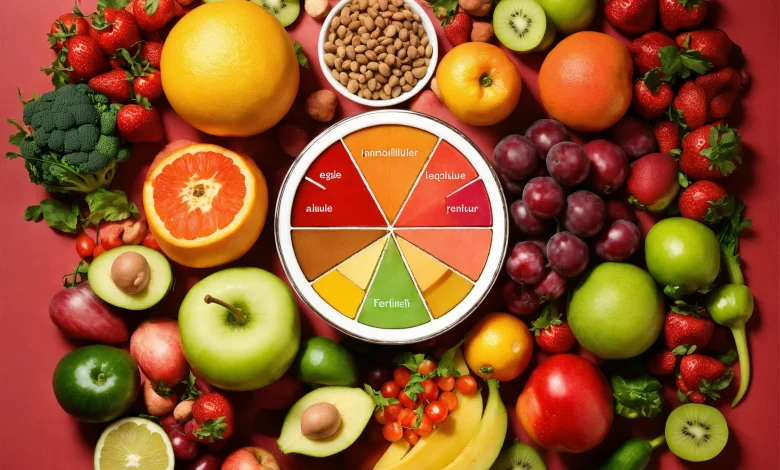Vegetarianism Explained: What It Means, Why People Choose It, and Who They Are 555

Understanding Vegetarianism: A Compassionate Lifestyle Choice 555
Millions of people across the globe, spanning all ages, ethnicities, and faiths, choose vegetarianism. From college students and grandparents to teenagers and professionals, vegetarians are found in every demographic and nation. Our ranks include Jews, Christians, Sikhs, Muslims, Rastafarians, atheists, Hindus, agnostics, yogis, humanists, Buddhists, Jains, Daoists, Bahais, and more. Like anyone passionate about their beliefs, vegetarians are eager to share their experiences and insights.

If you’re contemplating a shift towards a vegetarian lifestyle, you’ll find plenty of resources available. Libraries offer books on the subject, DVDs are available for purchase or streaming, and conversations with vegetarians can provide invaluable insights. Feel free to ask questions and explore what this lifestyle might entail.
So, What Exactly Does ‘Vegetarian’ Mean?
Sometimes the term can be confusing, as you might hear someone declare they’re a vegetarian while ordering fish or chicken. To clarify, vegetarians choose not to eat any living being that possesses the ability to experience suffering. This excludes animals, but not necessarily plants, as even plants have been shown to have some level of consciousness. Vegetarians avoid consuming any sentient beings, regardless of circumstances or social pressures.
Here’s a Breakdown of Common Vegetarian Categories:
- Ovo-lacto (or lacto-ovo) vegetarian: This group includes both eggs and dairy in their diet. They might eat eggs directly or in dishes and enjoy dairy products like cheese and milk.
- Lacto-vegetarian: This diet includes dairy but excludes eggs. Lacto-vegetarians consume grains, nuts, fruits, and vegetables but avoid eggs due to the belief that they could potentially support life.
- Vegan: Vegans adhere to a strictly plant-based diet and often extend their commitment beyond food to avoid animal products in all aspects of life, including clothing and cosmetics. They avoid dairy, eggs, and sometimes honey, and make choices to minimize their environmental footprint.

Why Choose Vegetarianism?
Our world is marked by a cycle of violence, where one life ends for another to survive—be it the predatory nature of animals or the industrial-scale meat production involving immense suffering. While this is a harsh reality, we can decide how we engage with it.
Opting for a vegetarian lifestyle is a personal statement of compassion and a commitment to reducing harm to other living beings. When animals are killed for food, they endure fear and pain. Imagine facing such a fate yourself—it’s a chilling thought. Most of us recognize that animals, whether pets or wild creatures, have emotions and desires similar to our own.
Research into animal behavior has revealed their emotional complexity. Scientists like Jane Goodall and Irene Pepperberg have expanded our understanding of animal intelligence and emotions, confirming that animals have rich inner lives.
Choosing vegetarianism means acknowledging these emotions and opting out of participating in their suffering. It involves careful consideration of what we eat, from checking for animal-derived ingredients in products like Thai curry and salad dressings to avoiding foods with gelatin or rennet.
Compassion drives this lifestyle. If our actions contribute to the suffering of others, how can we expect to find true happiness ourselves? By making conscious choices that avoid harm, we aim to build a more compassionate world for all.
Becoming a vegetarian is a journey of learning and adaptation, requiring adjustments and persistence. Over time, the commitment becomes second nature, and living in alignment with these values becomes a fulfilling part of who we are.
Moreover, the benefits of vegetarianism extend beyond personal health and well-being. Adopting a vegetarian diet has been shown to reduce the risk of chronic diseases such as heart disease, diabetes, and certain types of cancer. By consuming a variety of plant-based foods, you can enjoy a diet rich in nutrients that support overall health and vitality. For example, incorporating foods like lentils, quinoa, and leafy greens provides essential protein, iron, and other nutrients that are often associated with meat consumption.
Environmental considerations also play a significant role in the decision to adopt a vegetarian lifestyle. The industrial production of meat is a major contributor to environmental degradation, including deforestation, water pollution, and greenhouse gas emissions. By choosing a vegetarian diet, you are making a positive impact on the planet, helping to conserve natural resources and reduce your carbon footprint. As more people become aware of the environmental impact of their food choices, vegetarianism is increasingly seen as a sustainable and responsible way of living.
In addition to the ethical and environmental reasons for choosing vegetarianism, cultural and religious factors often influence dietary choices. For example, many Hindu, Jain, and Buddhist communities have long practiced vegetarianism as an expression of non-violence (ahimsa) and respect for all living beings. In these traditions, food is considered a sacred offering, and the act of eating is imbued with spiritual significance. By embracing vegetarianism, you may find a deeper connection to your cultural or spiritual heritage, fostering a sense of inner peace and harmony with the world around you.
Ultimately, the decision to become a vegetarian is a deeply personal one, rooted in a desire to live in accordance with your values and beliefs. Whether motivated by compassion for animals, concern for the environment, or a quest for better health, vegetarianism offers a path to a more mindful and ethical way of life. As you embark on this journey, you’ll discover a world of delicious and nourishing plant-based foods that can satisfy your appetite while aligning with your principles.
If you’re curious about vegetarianism or considering making the switch, take the time to educate yourself and explore the many resources available. From cookbooks and documentaries to online communities and local vegetarian groups, you’ll find a wealth of information and support to guide you on your journey. Remember, the transition to a vegetarian lifestyle doesn’t have to happen overnight—it’s okay to take small steps and make gradual changes as you learn and grow. With an open mind and a compassionate heart, you can make choices that reflect your commitment to a more compassionate and sustainable world.




One Comment